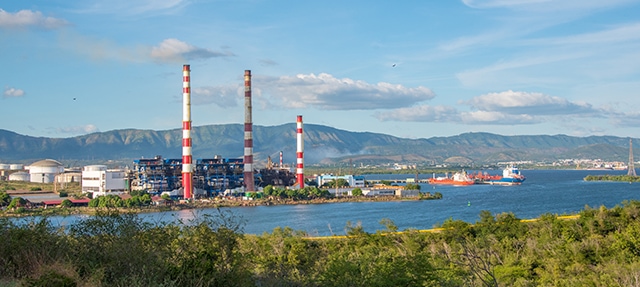The rigors of Cuba’s business environment make foreign direct investment a very long-term bet.

| CUBA: VITAL STATISTICS |
|---|
| Location: Caribbean |
| Neighbors: United States, Bahamas, Turks and Caicos, Haiti, Jamaica, Cayman Islands, Mexico |
| Capital city: Havana |
| Population (2016): 10,475,982 |
| Official language: Spanish |
| GDP per capita (2015): US$7602.30 |
| GDP growth (2015): 4.4% |
| Inflation (2012): 0.6% |
| Currency: Dual Currency System: CUC and CUP |
| Investment promotion agency: The Investment Promotion Center of the Ministry of Foreign Investment |
| Investment incentives available? Tax breaks higher in the Mariel Zone |
| Ease of Doing Business rank:Not ranked |
| Corruption Perceptions Index rank (2017): 62 |
| Political risks: Whether the president newly chosen in April will shift from the course of Raul Castro |
| Security risks: No terrorism, low crime |
| PROS |
|---|
| Investment through third-country companies |
| Tourism industry still growing |
| Increased flows of remittances from abroad |
| President Donald Trump’s Cuba measures in June 2017 did not completely erase former President Barack Obama’s initiatives |
| Government plans to end complicated dual-currency system |
| CONS |
|---|
| Tightening of rules on private sector |
| Serious liquidity problems |
| Cuban economy remains weak |
| Merchandise trade deficit strains the country’s finances |
| Government plans to end complicated dual-currency system |
| Companies do not hire or pay workers directly but must work through a government agency |
| Very complex approval process |
| Unresolved issues over Fidel Castro’s nationalization of American properties |
In theory, the Cuban government has broadened its view of foreign direct investment, according to Paolo Spadoni, author of Failed Sanctions: Why the US Embargo against Cuba Could Never Work and Cuba’s Socialist Economy Today: Navigating Challenges and Change, and an associate professor in the Department of Social Sciences at Augusta University.
“They have made declarations that foreign direct investment no longer will be considered a complement to state investment but would play a more important role in the economy,” he says. Harsh necessity drove the change. Cuba needs an estimated US$2 billion to US$2.5 billion in FDI annually (roughly twice current inflows), and is bedeviled by other issues: lack of access to foreign capital, a shortage of foreign currencies, and failure to diversify more effectively. Meanwhile, a history of unmet debt payments acts as a disincentive to potential investors. Cuba currently owes over US$1 billion in unpaid commercial debt.
The Cuban situation has become murkier than ever with US president Donald Trump’s apparent desire to reverse the previous administration’s decision to relax the 50-year-old American trade embargo.
The Cuban FDI environment has many obstacles but also a few advantages, including a good labor market, according to Janet Walsh, president and chief executive officer of Birchtree Global, a business advisory firm. She says company presidents speak highly of the attitude and capabilities of Cuban workers. Also, Cuba is generally safe. “You’re not going to feel that nervousness that you might feel walking in Bogotá late at night,” she adds.
Moreover, bribery is not a part of the culture. “In all my dealings in Cuba I never paid a single cent in a bribe,” says David McMillan, president of AXIS Hospitality International and former president of Cuban Canadian Resorts, a joint venture with the government.
The country’s lagging development offers significant opportunities to invest in infrastructure, agriculture, manufacturing and tourism. “There’s not a single sector that doesn’t require millions,” McMillan says. “Due to the complexity of establishing the corporate entities, to co-invest and develop with the State enterprises, their ability to absorb their immediate financial needs rapidly is limited.”
Meanwhile, Erik Richer La Flèche, a partner at law firm Stikeman Elliott, adds macroeconomic cautions. Cuba’s leaders give every appearance of liking their system and are looking only to improve it, not change it fundamentally.
Cuba has a relatively short-term horizon, seeking early returns from investments, which has caused friction with foreign investors looking for longer-term potential. Moreover, the government will not hesitate to roll back measures if it feels its influence threatened.
These and other disadvantages give some investors pause; after all, there are other options. “You think about the investment that you have to make in a very small island, when you might turn that effort to Mexico. Argentina is starting to do better. Colombia has made it a little easier to do business,” Walsh says. “Companies weigh their efforts.”



